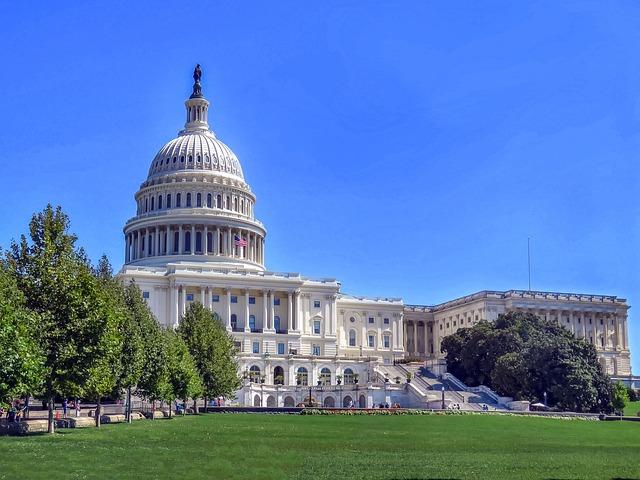As the conflict in Sudan continues too escalate, the need for a comprehensive and proactive approach by the United States has become more urgent than ever.The wilson Center’s recent analysis highlights the complex web of threats and interests that underpin the ongoing violence, urging policymakers to adopt a bolder strategy aimed at bringing about lasting peace. This article explores the critical factors influencing the situation in Sudan, including the role of regional dynamics, humanitarian crises, and geopolitical implications, while emphasizing the necessity for a nuanced U.S. response that moves beyond conventional diplomatic efforts. With an eye toward fostering stability and addressing the root causes of conflict, the time has come for a reassessment of American engagement in Sudan—one that prioritizes not only the cessation of violence but also the sustainable progress of the region.
A Comprehensive Assessment of the Conflict in Sudan and Its Regional Implications
The ongoing conflict in Sudan has profound implications not only for the nation itself but also for the broader Horn of Africa and neighboring regions. This multifaceted crisis is characterized by a struggle for power, ethnic tensions, and the destabilization of established governance structures.The resurgence of violence has resulted in mass displacement, with millions fleeing their homes and seeking refuge in neighboring countries. The humanitarian situation is dire, with access to essential services diminishing and exacerbating the plight of ordinary Sudanese citizens. Key factors influencing the conflict include:
- Competing Factions: Internal power struggles among military leaders and political groups.
- Ethnic Divisions: Long-standing grievances fueling inter-ethnic violence.
- Economic Instability: Deteriorating economic conditions leading to widespread poverty and discontent.
Regionally, the fallout from Sudan’s conflict poses a significant challenge to neighboring nations, as it threatens to spill over borders and destabilize already fragile states. Nations such as South Sudan and Chad are especially at risk, facing the potential influx of refugees and increased insecurity. Moreover, external actors with vested interests in the region—such as China and the Gulf states—could heighten tensions as they vie for influence.A strategic and bold approach from the United States is essential to address these key threats and protect both US interests and regional stability. Critically important considerations for US involvement include:
| Consideration | Description |
|---|---|
| Diplomatic Engagement | Facilitating dialog between conflicting factions. |
| Humanitarian Aid | Providing immediate assistance to affected populations. |
| Regional cooperation | Working with African Union and IGAD for localized solutions. |
Strategic Priorities for U.S. Diplomacy in Sudan: Engaging Key Stakeholders
To forge a successful diplomatic path in Sudan, the U.S. must prioritize engagement with a diverse range of stakeholders that influence the dynamics of conflict and peace. This includes not only the central government and rebel factions but also regional actors, civil society groups, and international partners working towards stability. Engaging key stakeholders enables the U.S. to gain a nuanced understanding of the socio-political landscape, subsequently allowing for tailored interventions that resonate with local needs and aspirations. Prioritizing dialogue with influential Sudanese leaders and community representatives is vital for fostering trust and commitment towards a negotiated resolution.
moreover, the U.S. should establish a framework for collaboration that emphasizes shared interests and mutual benefits. This could be structured around several key areas:
- Security Partnerships: Aligning counter-terrorism efforts with Sudan’s interests to promote stability.
- Humanitarian Aid: Coordinating with NGOs and international bodies to address immediate food security and health crises.
- Economic Investment: Supporting sustainable development initiatives that empower local economies.
To provide a clearer picture of the diplomatic landscape, the table below identifies the primary stakeholders and their possible interests regarding U.S. engagement:
| Stakeholder | Interests |
|---|---|
| Sudanese Government | Legitimacy,economic support,stability |
| Rebel groups | political representation,resource control |
| Civil Society | Human rights,governance reforms |
| Neighboring Countries | Regional stability,trade agreements |
| International NGOs | Humanitarian access,advocacy |
Addressing Humanitarian Crises: expanding U.S. Aid and Support Mechanisms
In light of the ongoing humanitarian crises exacerbated by the conflict in Sudan, a comprehensive review and expansion of U.S. aid and support mechanisms is imperative. By mobilizing resources more effectively, the U.S. can play a pivotal role in alleviating suffering and fostering stability in the region. Targeted strategies should include:
- Strengthening partnerships with local NGOs to enhance reach and impact.
- Increasing financial aid to address immediate needs such as food, healthcare, and shelter.
- Implementing innovative funding mechanisms that ensure rapid response times to emerging crises.
Moreover, the necessity for a multi-faceted approach that aligns humanitarian efforts with political and security interests cannot be overstated. This involves not just providing resources but also integrating diplomatic efforts to promote lasting peace. A framework for such an approach could include:
| Strategy | Objective |
|---|---|
| Humanitarian Assistance | Provide immediate relief to affected populations. |
| Political Diplomacy | Facilitate dialogues among conflicting parties. |
| Development aid | Support long-term stability and rebuilding efforts. |
Leveraging International Partnerships to Counteract Instability in Sudan
In order to effectively address the multifaceted challenges presented by the conflict in Sudan, it is imperative for the United States to cultivate robust international partnerships. Collaborating with regional organizations such as the African Union and the Intergovernmental Authority on Development (IGAD) can enhance diplomatic efforts and promote stability in the region. Through these alliances, the U.S. can leverage shared resources and expertise, enabling a more comprehensive response to the ongoing humanitarian crisis. Additionally,engaging with key international stakeholders—like the european Union and Gulf states—can amplify pressure on conflicting parties to embrace ceasefire agreements and expedite humanitarian access. This collective approach can ensure that the interests of both local communities and international actors are considered.
Moreover, the establishment of a coordinated framework for action among partner nations can prioritize initiatives aimed at building lasting peace. An effective strategy may involve:
- Joint peacekeeping missions: Deploying international forces to protect civilians and stabilize critical areas.
- Economic cooperation: facilitating investments aimed at rebuilding war-torn infrastructure and stimulating the local economy.
- Humanitarian assistance: Streamlining aid delivery by coordinating with international NGOs and local organizations.
Furthermore, a tangible commitment from these partners can be highlighted through bilateral and multilateral funding agreements, showcased in the following table:
| Partner | Funding commitment | Focus Area |
|---|---|---|
| European Union | $200 million | Humanitarian Aid |
| United Kingdom | $100 million | Peacekeeping Operations |
| Gulf states | $150 million | Infrastructure Development |
Promoting Inclusive Governance to Foster Long-term peace in Sudan
In the quest for lasting peace in Sudan,fostering a governance framework that embraces all segments of society is essential. Inclusive governance can bridge the divides that exist among diverse ethnic, cultural, and political groups. By establishing clear decision-making processes and encouraging civic participation, the Sudanese government can create a sense of ownership among citizens. Critical to this initiative is the active involvement of marginalized communities, ensuring their voices are heard in policy formulation and national dialogue. Mechanisms such as community councils and forums could facilitate these interactions, allowing for a more democratic approach to governance.
To effectively promote inclusive governance, several strategies must be prioritized:
- Empowering Local leaders: Training and resources should be provided to local leaders who can represent their communities effectively.
- Legal Frameworks: Revising legal structures to support equitable representation in government institutions is crucial.
- International Support: Engaging international partners to provide financial and technical assistance can reinforce local efforts.
- Education Initiatives: Implement programs that educate citizens on their rights and the importance of participation in governance.
Ensuring these strategies are institutionally endorsed will not only help stabilize Sudan but also pave the way toward a more cohesive national identity. The eventual result would be a resilient political culture that supports peacebuilding initiatives and mitigates the potential for future conflicts.
Identifying and Mitigating Key Threats to U.S. Interests in the Horn of Africa
The Horn of Africa is a region beset by multifaceted challenges that directly threaten U.S. interests, including national security, economic stability, and humanitarian concerns. Key threats include the rise of extremist groups, ongoing civil conflicts, and environmental degradation. The region’s fragile political landscape has rendered countries susceptible to internal strife, often spilling over borders and destabilizing neighboring areas. As external actors amplify their influence, the risk of U.S. interests being undermined increases significantly. It is imperative to acknowledge the strategic significance of partnerships with local governments and civil society to combat these threats effectively.
To effectively mitigate risks, a multifaceted strategy that addresses the root causes of instability is essential. This could involve:
- Strengthening Diplomatic Channels: Engage with regional powers to foster dialogue and conflict resolution.
- Supporting Economic Development: Promote initiatives that bolster job creation and alleviate poverty, which can fuel conflict.
- Enhancing Security Cooperation: Collaborate with local military and law enforcement agencies to confront extremist groups and improve border security.
- Promoting Good Governance: Advocate for transparency and accountability in governance to build public trust and reduce grievances.
By prioritizing these areas,the U.S. can play a significant role in stabilizing the Horn of Africa and securing its interests. The successful application of these strategies hinges on a comprehensive understanding of the region’s dynamics, which should inform policy decisions and investment allocations. Below is a table summarizing critical areas for U.S. engagement:
| Focus Area | Action Steps |
|---|---|
| Diplomatic Engagement | Facilitate multilateral talks |
| Economic Initiatives | invest in sustainable projects |
| Security Collaboration | Joint training programs with local forces |
| Governance Support | Provide aid for electoral processes |
Closing Remarks
as the conflict in Sudan continues to escalate, the call for a bolder US approach becomes increasingly urgent. The insights gathered by the Wilson Center emphasize the necessity of not only addressing immediate threats but also recognizing the underlying interests that shape the geopolitical landscape. By adopting a more proactive and nuanced strategy, the US can play a pivotal role in facilitating dialogue, supporting humanitarian efforts, and promoting long-term stability in a region plagued by violence. As stakeholders grapple with the complex realities on the ground, it is indeed crucial for the international community to unite in its efforts to forge a path toward peace and reconciliation.The situation in Sudan remains fluid, and the time for decisive action is now. Only through concerted efforts can the United States hope to make a meaningful impact on the future of Sudan and its people.

